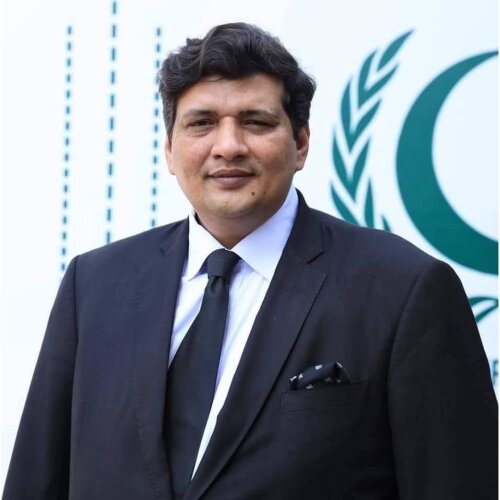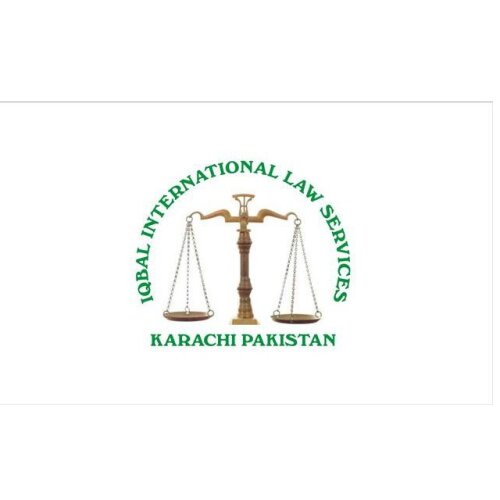Best Same Sex & LGBT Lawyers in Karachi
Share your needs with us, get contacted by law firms.
Free. Takes 2 min.
Free Guide to Hiring a Family Lawyer
List of the best lawyers in Karachi, Pakistan
About Same Sex & LGBT Law in Karachi, Pakistan
Karachi, the bustling metropolis of Pakistan, is home to a diverse population, including the LGBT (Lesbian, Gay, Bisexual, and Transgender) community. The laws regarding same-sex relations and LGBT rights are steeped in the broader national legal framework of Pakistan, which is influenced by traditional social norms and religious values. There is a significant societal stigma around same-sex relations, and legal protections for LGBT individuals are limited. The legal landscape for LGBT rights is challenging and evolving as societal attitudes slowly shift, but widespread acceptance remains limited.
Why You May Need a Lawyer
Individuals within the LGBT community in Karachi may require legal assistance for various reasons. These include facing harassment or discrimination due to their sexual orientation or gender identity, legal questions related to privacy rights, seeking advice on family law matters, such as custody or adoption, that can be compounded by sexual orientation, and dealing with employment discrimination. Legal assistance can also be crucial for those facing legal actions or charges related to their sexual orientation under current laws or for those seeking to understand their legal rights in personal and professional scenarios.
Local Laws Overview
The legal environment concerning same-sex relations and LGBT rights in Karachi falls under the jurisdiction of national laws. Homosexuality is criminalized under Section 377 of the Pakistan Penal Code, which penalizes consensual same-sex relations. While transgender individuals have gained some legal recognition and rights, including the ability to self-identify their gender thanks to the Transgender Persons (Protection of Rights) Act 2018, broader LGBT rights remain contentious. There are no specific anti-discrimination laws that protect LGBT individuals. The legal climate is shaped by socio-cultural norms, making advocacy and legal support critically important for those affected.
Frequently Asked Questions
What legal protections exist for LGBT individuals in Pakistan?
There are very limited legal protections for LGBT individuals, largely focused on the transgender community, which has seen some progressive legislation recently. However, same-sex relations remain illegal.
Can I face legal action due to my sexual orientation?
Yes, under Pakistan's Penal Code, consensual same-sex relationships are criminalized, posing a legal risk to individuals engaged in such relationships.
Are there legal avenues available to challenge discrimination based on sexual orientation?
Currently, there are no comprehensive anti-discrimination laws specifically protecting sexual orientation or gender identity. Legal challenges would need to be framed within general human rights or contractual law frameworks.
Can transgender individuals legally change their gender in Pakistan?
Yes, under the Transgender Persons (Protection of Rights) Act, individuals have the right to self-identify their gender and have this reflected in legal documents.
What family law rights do LGBT individuals have in Pakistan?
LGBT individuals do not have specific rights in the context of family law, such as marriage or adoption, due to the illegality of same-sex relations and the lack of legal recognition of same-sex partnerships.
Where can I report discrimination or violence against LGBT individuals?
While there is no specific body for reporting LGBT discrimination, victims can approach local police or human rights organizations. Supportive international organizations or NGOs may also offer assistance.
Is there any government support for LGBT rights in Pakistan?
Government support is limited and mainly focused on the transgender community through existing legal protective frameworks, with broader LGBT rights lacking formal government backing.
How can international law influence LGBT rights in Pakistan?
International human rights norms and pressure can influence domestic policies. However, actual implementation and change depend on internal advocacy and socio-political dynamics.
Are there any local organizations supporting LGBT rights?
Yes, several NGOs and community groups advocate for LGBT rights, provide support and resources, though they operate within challenging social environments.
How can someone in Karachi seek confidential legal advice on LGBT issues?
Confidentiality is essential; individuals can seek lawyers known for handling human rights or LGBT-related cases discreetly and sensitively.
Additional Resources
For those seeking support, several local and international organizations provide resources and assistance to the LGBT community in Karachi:
- Human Rights Commission of Pakistan (HRCP) - provides a platform for the advocacy of minority rights.
- NAZ Pakistan - offers support services for sexual health and human rights advocacy for the LGBT community.
- Forum for Dignity Initiatives - focuses on advocacy and education regarding gender and sexual diversity.
Next Steps
For individuals requiring legal assistance, the first step is to consult with a legal professional experienced in LGBT laws and human rights. Conduct research to identify lawyers or law firms in Karachi who are knowledgeable and sensitive to LGBT issues. Consider reaching out to local advocacy groups that may offer referrals or advice. It's essential to evaluate the experience of any legal counsel regarding confidential handling of sensitive issues. Prepare all relevant documentation and articulate your legal concerns clearly to your lawyer to help them understand and advocate effectively on your behalf.
Lawzana helps you find the best lawyers and law firms in Karachi through a curated and pre-screened list of qualified legal professionals. Our platform offers rankings and detailed profiles of attorneys and law firms, allowing you to compare based on practice areas, including Same Sex & LGBT, experience, and client feedback.
Each profile includes a description of the firm's areas of practice, client reviews, team members and partners, year of establishment, spoken languages, office locations, contact information, social media presence, and any published articles or resources. Most firms on our platform speak English and are experienced in both local and international legal matters.
Get a quote from top-rated law firms in Karachi, Pakistan — quickly, securely, and without unnecessary hassle.
Disclaimer:
The information provided on this page is for general informational purposes only and does not constitute legal advice. While we strive to ensure the accuracy and relevance of the content, legal information may change over time, and interpretations of the law can vary. You should always consult with a qualified legal professional for advice specific to your situation.
We disclaim all liability for actions taken or not taken based on the content of this page. If you believe any information is incorrect or outdated, please contact us, and we will review and update it where appropriate.













